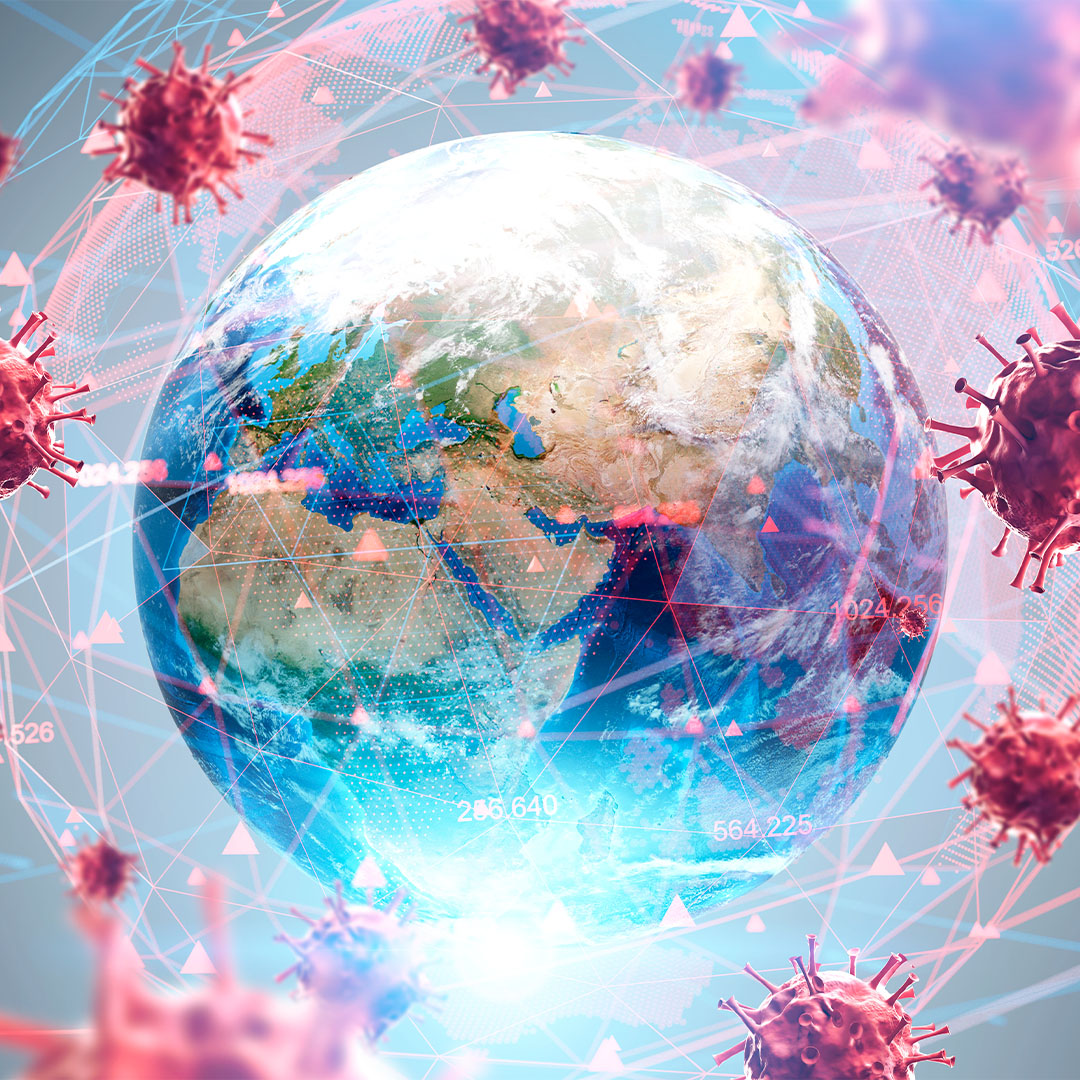In an increasingly interconnected world, where infectious diseases cross borders with ease, building resilience and preparedness is paramount. To address these challenges, member states of the World Health Organization (WHO) are negotiating a groundbreaking “Pandemic Agreement” aimed at strengthening global efforts to prevent, prepare for, and respond to future pandemics.
This vital initiative was the focus of a recent virtual seminar hosted by the University of Miami's Public Health Policy Lab in partnership with the AIDS Healthcare Foundation (AHF) Global Public Health Institute and Mexico’s National Public Health Institute. The event convened an esteemed panel of experts in public health, international relations, and pandemic preparedness to discuss the agreement's implications for Latin America.
Strengthening Global Preparedness
Jorge Saavedra, M.D., M.P.H., M.Sc., executive director of the AHF Global Public Health Institute and a veteran in global health governance, moderated the discussion. Opening the seminar, Dr. Saavedra emphasized the importance of collective action in addressing health crises, noting that the Pandemic Agreement provides a crucial framework for equitable global cooperation.
The panelists included Miriam Medel García, Head of the Health & Environment Team representing Mexico at the negotiations in Geneva, and Dr. María Juliana Tenorio Quintero, Minister Counselor for the Colombian Mission in Geneva. Both experts shared insights into the agreement's key provisions, which focus on prevention, preparedness, response, and equity.
Medel García highlighted the agreement's potential to operationalize global health equity by ensuring access to vaccines, therapeutics, and diagnostics for vulnerable populations. She vocalized the critical importance of cooperation among Latin American countries, particularly in building regional health self-sufficiency through shared resources and strengthened partnerships.
“The Treaty aims to create an international legal framework that guarantees better cooperation, transparency, and equity during future pandemics. Its core principle is equity, which means ensuring that the most vulnerable countries receive support and access to resources during pandemics, said Medel García. “For Mexico, the Treaty is very important, as we believe it can improve the international health system and foster self-sufficiency in health, especially in Latin America.”
Dr. Tenorio Quintero provided a deeper look into the technical and political complexities of the negotiations. She explained that the agreement aims to establish interconnected systems for research and development, technology transfer, and supply chain management to improve pandemic response capabilities worldwide. “The Pandemic Treaty must be seen as a whole, she said.
“Articles on research and development, sustainable production, technology transfer, and supply chains form an interdependent chain to ensure countries are prepared and able to respond to future pandemics. Colombia has emphasized the importance of operationalizing equity in these systems, as well as ensuring the Treaty serves as a foundation for future developments to adapt to changing challenges.”
A Regional Perspective
Ricardo Matute Rojas, Senior Policy Advocacy Manager at Drugs for Neglected Diseases Initiative, presented a compelling argument for the agreement’s relevance to neglected diseases in Latin America.
Matute Rojas outlined how a reimagined approach to research and development could transform access to critical healthcare tools, benefiting not only pandemic preparedness but also addressing endemic diseases such as dengue and Chagas.
Reflecting on the collaborative nature of the discussions, Matute Rojas shared, “It is an honor to share the panel with María Juliana and Miriam; Mexico and Colombia have been key and continue to be key in these negotiations.”
The discussion further highlighted the need for Latin American countries to coordinate efforts and speak with a unified voice during negotiations. Collaboration, participants agreed, is crucial for ensuring that the unique challenges faced by the region are adequately addressed in the final agreement.
Moving Forward
The seminar reinforced the importance of the Pandemic Agreement as a pathway to strengthen health systems, improve global cooperation, and enhance the resilience of vulnerable populations. Panelists called for continued dialogue and proactive engagement from stakeholders across the region to ensure the agreement reflects the principles of equity, sustainability, and global solidarity.
With negotiations entering a critical phase, events like this provide a vital platform for raising awareness and fostering collaboration among governments, public health leaders, and civil society. Together, these efforts pave the way for a more equitable and prepared global response to future health crises.
Written by Deycha Torres Hernández, published on January 22, 2025.






